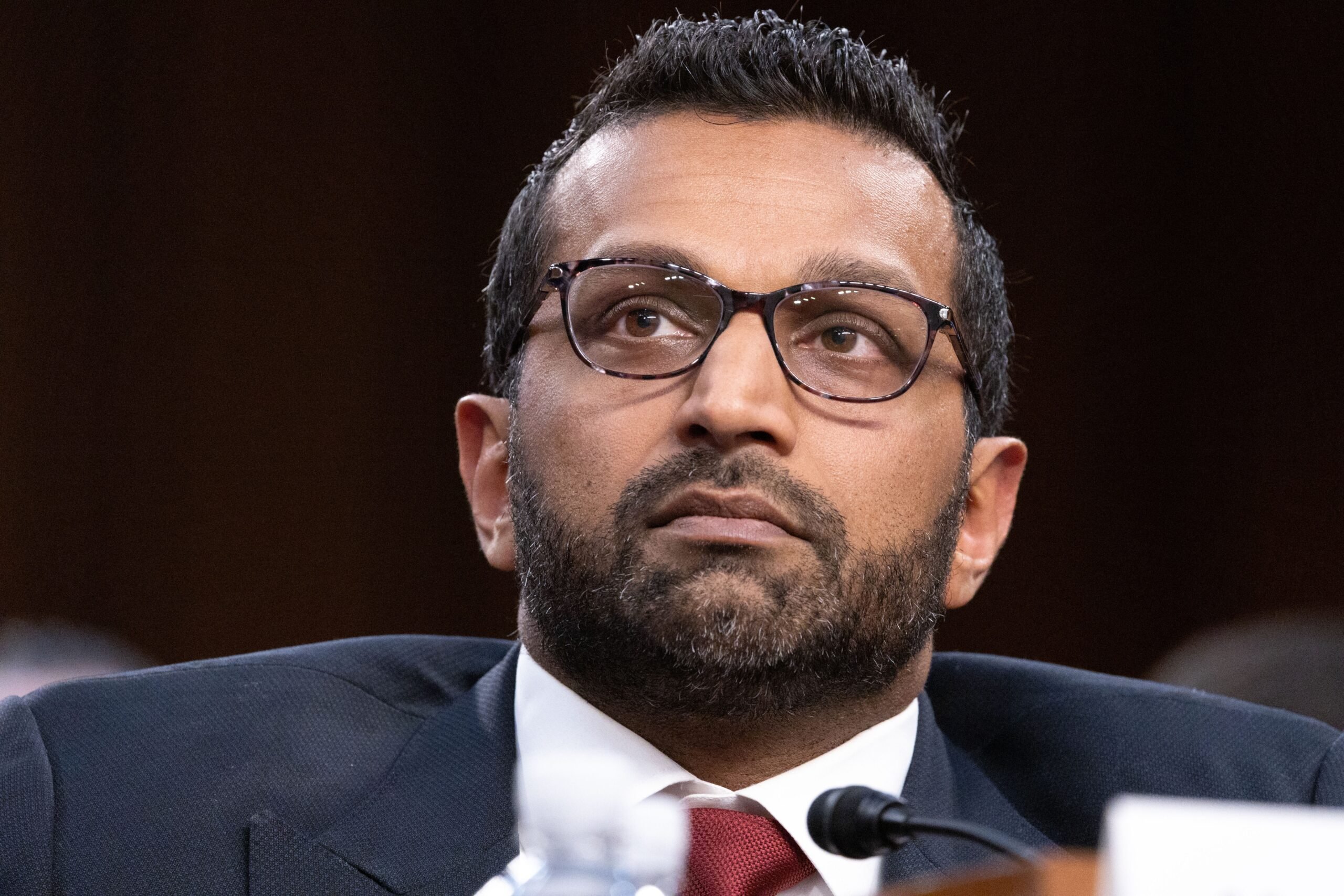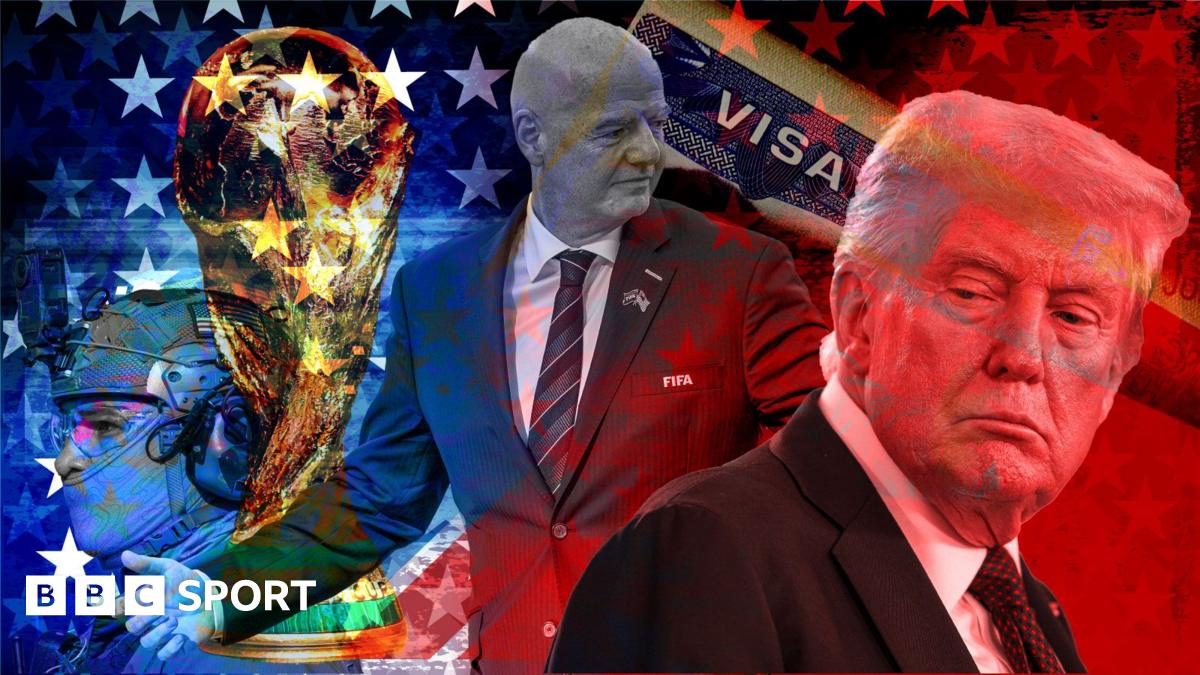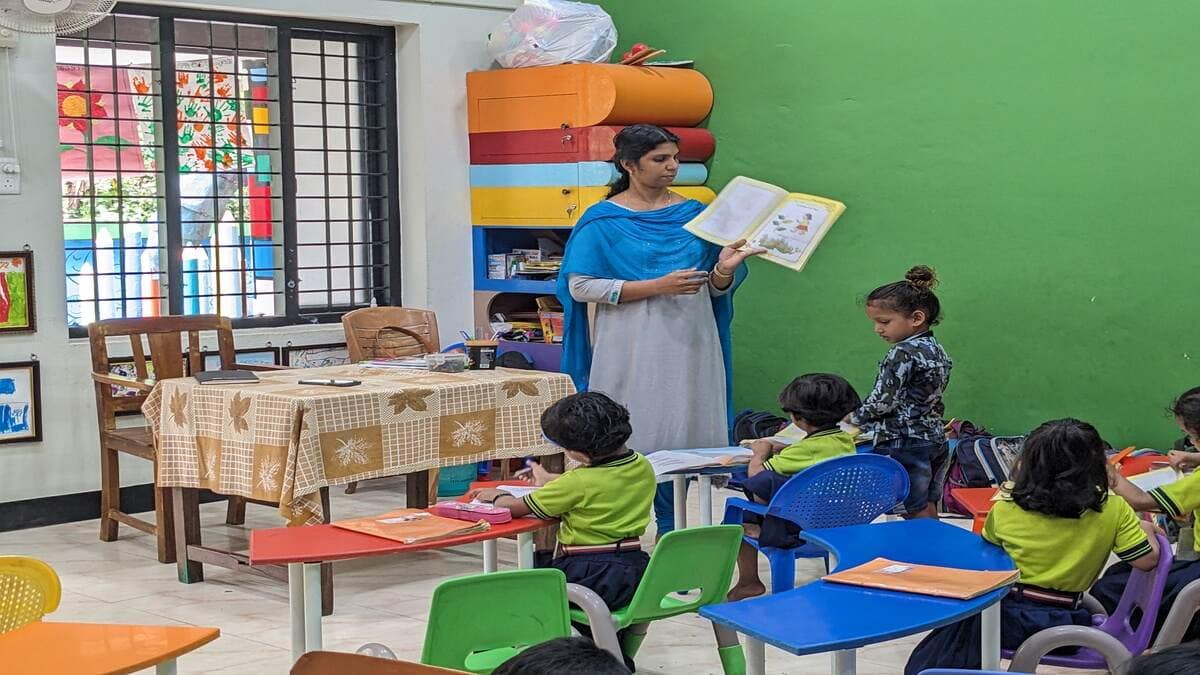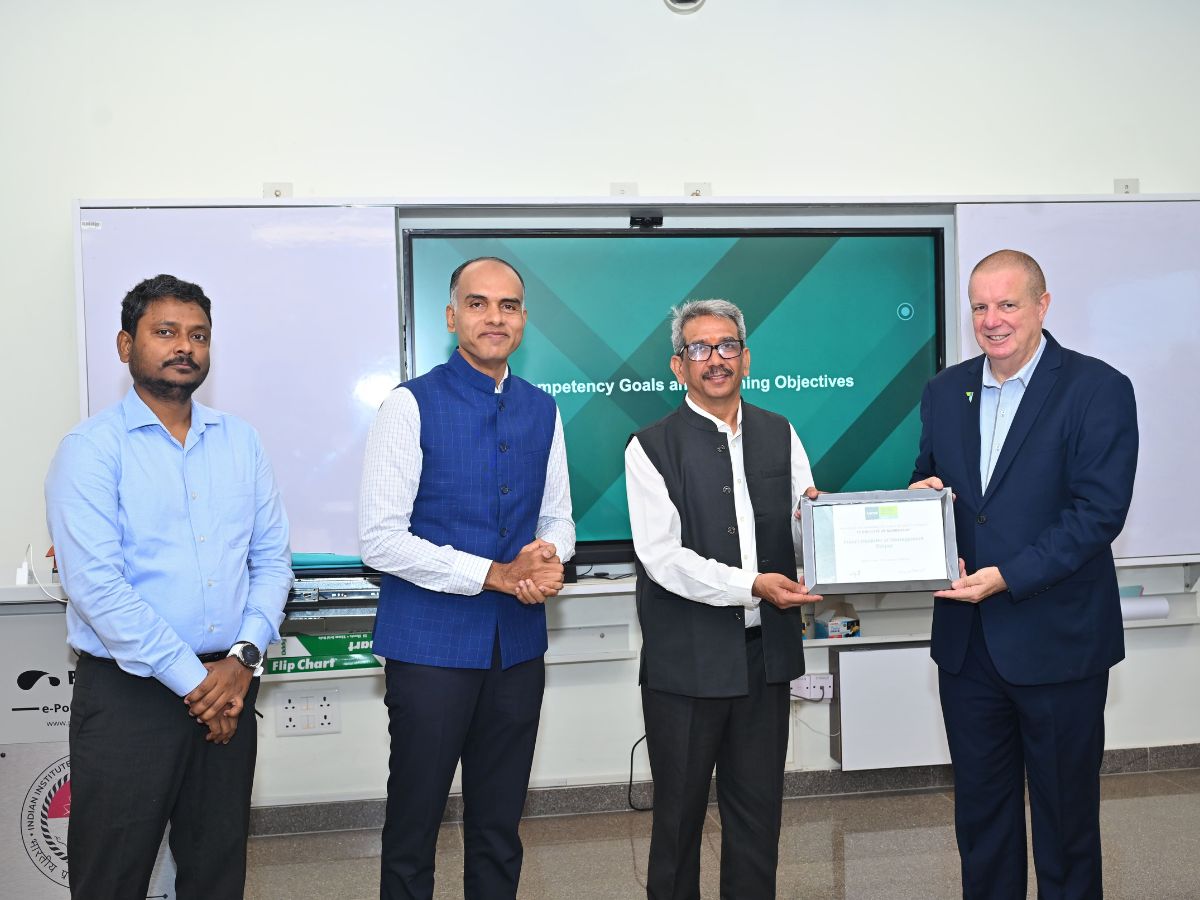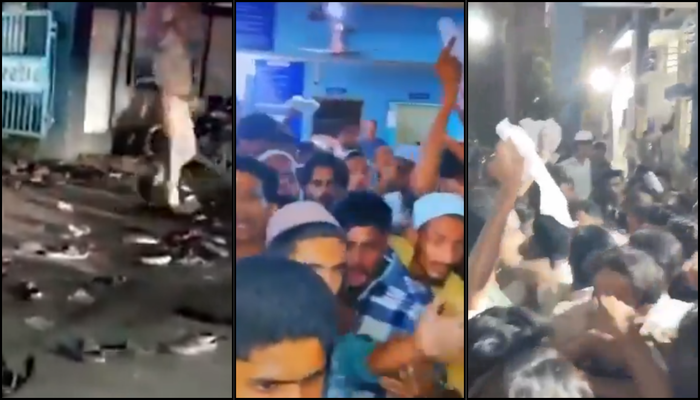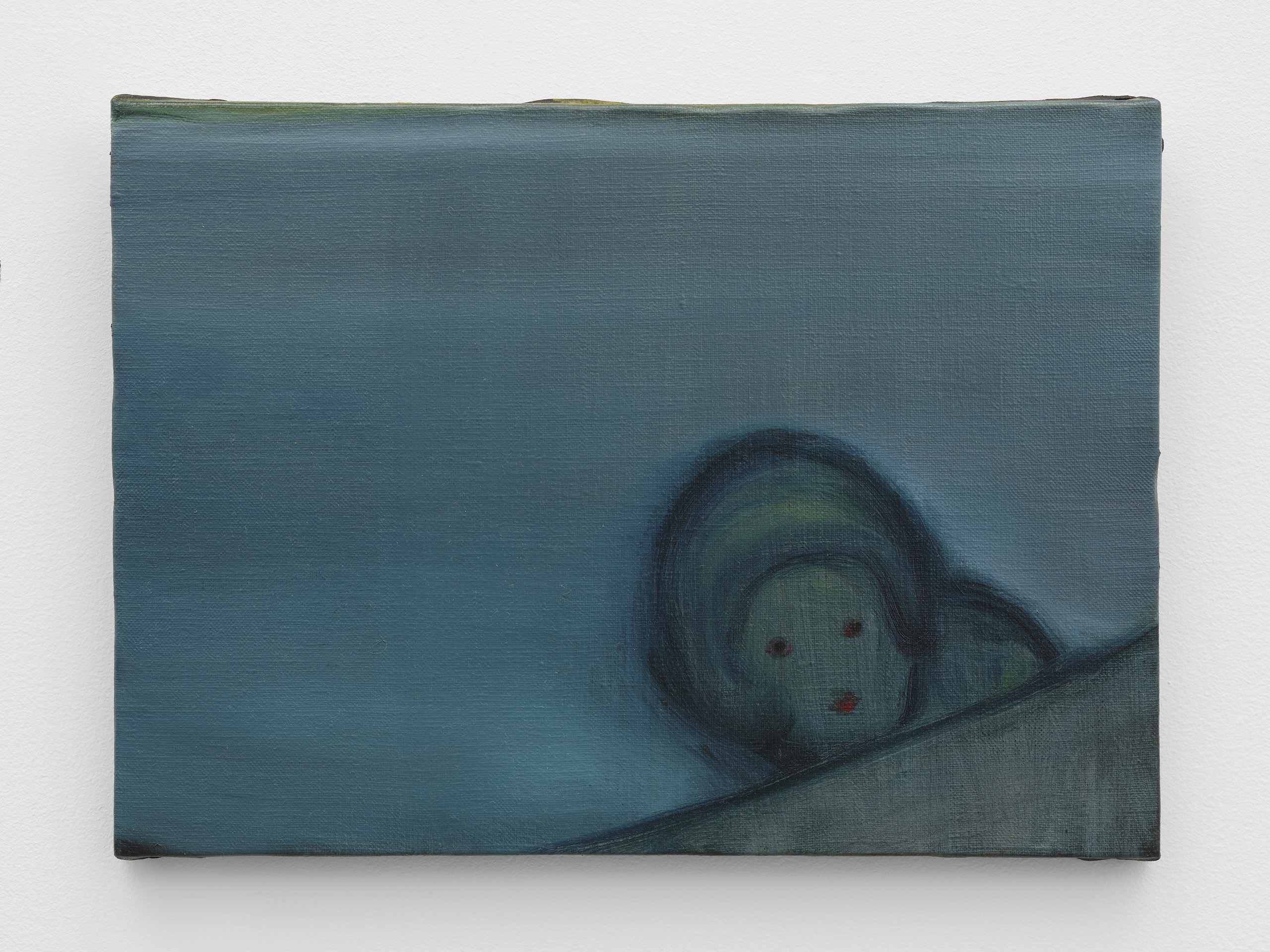Pakistani commentator Sana Mir sparks outrage with ‘Azad Kashmir’ remark during Women’s World Cup: Why BCCI must send her packing
The Women’s World Cup 2025 taking place in India and which is meant to be a celebration of women’s cricket, has become embroiled in controversy after former Pakistan captain Sana Mir made a political remark during commentary. While covering Pakistan’s match against Bangladesh, Mir described cricketer Natalia Parvaiz as “hailing from Azad Kashmir,” a comment widely condemned in India as a violation of the International Cricket Council’s (ICC) strict ban on mixing politics with sport. The part of Kashmir Mir was referring to in the commentary box is illegally occupied by Pakistan. Apparently, there are protests going on currently in Pakistan Occupied Kashmir against atrocities committed by Pakistan Army. Thousands of Indian fans took to social media, tagging both ICC and BCCI, demanding Mir’s removal from the commentary panel for dragging geopolitics into cricket and trying to legitimise Pakistan’s illegal occupation of Indian territory. Player ‘from Azad Kashmir’ is this kind of commentary allowed? And then they say keep politics away from sports. pic.twitter.com/1HSHjRWMZG— Lala (@FabulasGuy) October 2, 2025 A pattern of politicising cricket Mir’s remark is not an isolated slip of the tongue but part of a broader pattern of Pakistani cricketers turning the field into a propaganda theatre. The Asia Cup 2025 was marred by similar spectacles. Instead of cricketing brilliance, the headlines were dominated by Haris Rauf’s bizarre “fighter jet” mimicry and his “6-0” flash, gestures echoing false Pakistani Army claims after their humiliating losses in Operation Sindoor earlier this year. Sahibzada Farhan added to the farce with a gun-like bat celebration, an act seen as glorification of terrorism. This was no ordinary sledging. It was the recycling of state narratives before a global audience. When cricketers enact symbols of violence or mimic disputed military claims, sport ceases to be neutral ground and becomes a megaphone for propaganda. Pakistan’s indoctrination on display These gestures reflected something far deeper: Pakistan’s societal malaise, born of decades of indoctrination. From schools and mosques to TV studios and sports fields, generations have been conditioned to equate hostility towards India with honour, and jihadist violence with noble resistance. In this warped ecosystem, defeats are spun into triumphs, lies replace facts, and even celebrated athletes internalise and replay propaganda lines. Rauf’s fighter-jet mimicry and Farhan’s gun salute were not spontaneous emotional outbursts; they were echoes of a militarised psyche that glorifies violence and denial. For Pakistani society, the scoreboard matters less than the illusion of supremacy. The Asia Cup “trophy heist” If propaganda seeped onto the field, it also crept into administration. The Asia Cup final descended into chaos when PCB chief and ACC President Mohsin Naqvi walked away with the trophy, a spectacle condemned globally as a “trophy heist.” Reports say Naqvi even carried the trophy and medals to his Dubai hotel room. BCCI leaders Rajeev Shukla and Ashish Shelar confronted Naqvi in a stormy ACC meeting, insisting the trophy was India’s by right. But Naqvi refused to apologise, and the BCCI has now warned that the issue will be escalated at the ICC’s November meeting. The scandal has cast a long shadow over Asian cricket’s credibility, especially with the 2026 ICC T20 World Cup on the horizon. The shadow of Pahalgam and Operation Sindoor Underlying these sporting controversies is the grim reality of terrorism. In April 2025, Pakistani terrorists massacred over 26 Hindu tourists in Pahalgam, targeting men after confirming their religious identity. The atrocity triggered widespread outrage in India and led directly to the Indian team’s refusal to accept the Asia Cup trophy from Naqvi. India’s response was decisive and devastating. Through Operation Sindoor, Indian forces destroyed nine terror bases, including facilities of Jaish-e-Mohammed (JeM) and Lashkar-e-Taiba (LeT). As the conflict escalated, India went further—obliterating at least 11 Pakistani air bases. The strikes forced Islamabad to scramble for a ceasefire, marking one of Pakistan’s most humiliating military episodes in decades. Yet, true to form, Pakistan’s Army and propaganda machine sought to reframe these defeats as victories. Haris Rauf’s “6-0” gesture was not personal bravado; it was a symbolic replay of Rawalpindi’s disinformation strategy, designed to distract from battlefield losses with catchy slogans. BCCI should ensure Mir catches the next flight back to Islamabad The Women’s World Cup controversy, Haris Rauf’s antics, Naqvi’s trophy heist, and the Pahalgam massacre are not isolated events. They are pieces of the same puzzle: a nation addicted to supremacist delusions, where cricketers, clerics, commentators, and generals sing from the same sheet of propaganda. For the ICC, the challenge is immediate: T
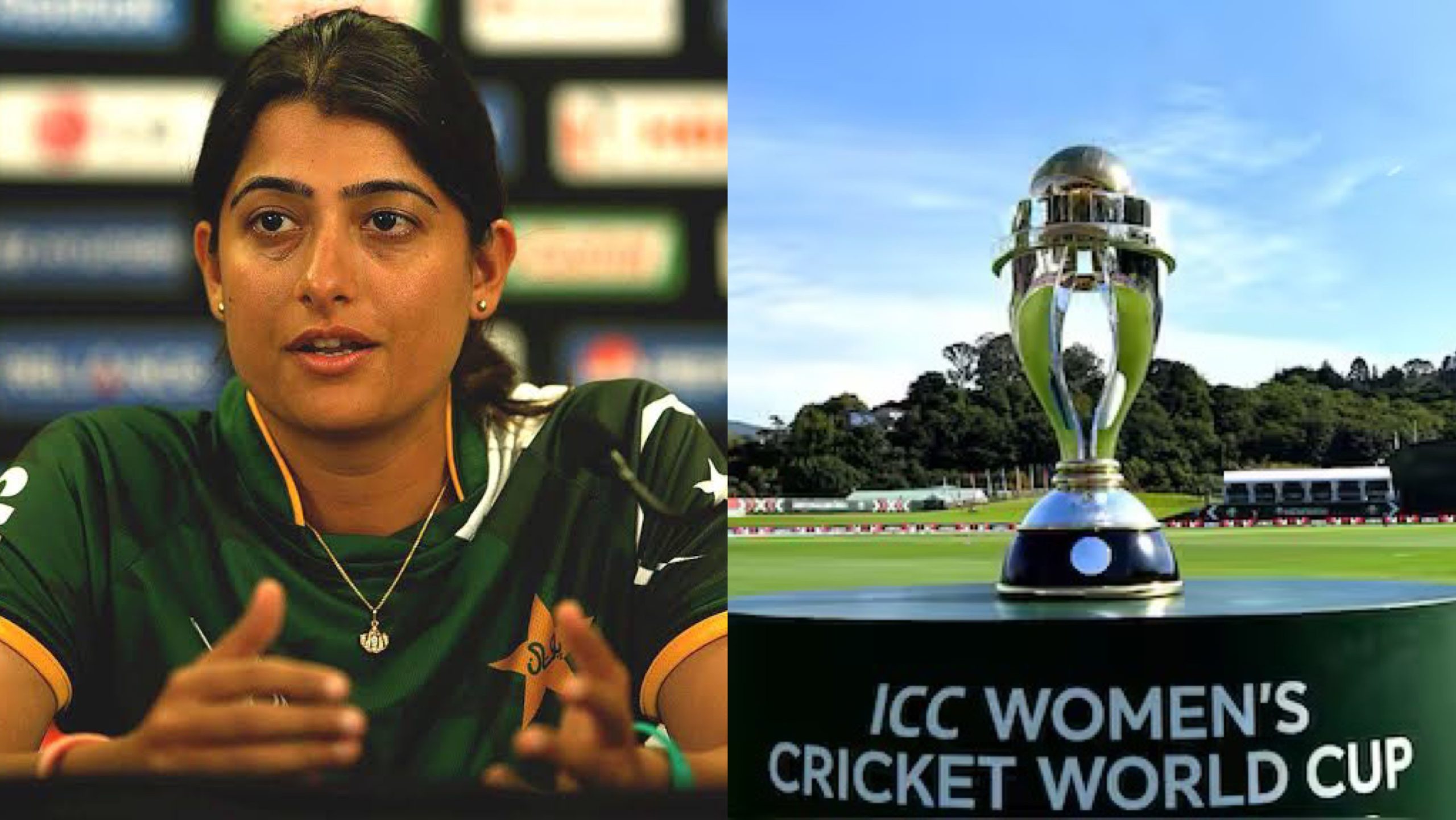


The Women’s World Cup 2025 taking place in India and which is meant to be a celebration of women’s cricket, has become embroiled in controversy after former Pakistan captain Sana Mir made a political remark during commentary.
While covering Pakistan’s match against Bangladesh, Mir described cricketer Natalia Parvaiz as “hailing from Azad Kashmir,” a comment widely condemned in India as a violation of the International Cricket Council’s (ICC) strict ban on mixing politics with sport. The part of Kashmir Mir was referring to in the commentary box is illegally occupied by Pakistan. Apparently, there are protests going on currently in Pakistan Occupied Kashmir against atrocities committed by Pakistan Army.
Thousands of Indian fans took to social media, tagging both ICC and BCCI, demanding Mir’s removal from the commentary panel for dragging geopolitics into cricket and trying to legitimise Pakistan’s illegal occupation of Indian territory.
Player ‘from Azad Kashmir’ is this kind of commentary allowed?
— Lala (@FabulasGuy) October 2, 2025
And then they say keep politics away from sports. pic.twitter.com/1HSHjRWMZG
A pattern of politicising cricket
Mir’s remark is not an isolated slip of the tongue but part of a broader pattern of Pakistani cricketers turning the field into a propaganda theatre. The Asia Cup 2025 was marred by similar spectacles. Instead of cricketing brilliance, the headlines were dominated by Haris Rauf’s bizarre “fighter jet” mimicry and his “6-0” flash, gestures echoing false Pakistani Army claims after their humiliating losses in Operation Sindoor earlier this year. Sahibzada Farhan added to the farce with a gun-like bat celebration, an act seen as glorification of terrorism.
This was no ordinary sledging. It was the recycling of state narratives before a global audience. When cricketers enact symbols of violence or mimic disputed military claims, sport ceases to be neutral ground and becomes a megaphone for propaganda.
Pakistan’s indoctrination on display
These gestures reflected something far deeper: Pakistan’s societal malaise, born of decades of indoctrination. From schools and mosques to TV studios and sports fields, generations have been conditioned to equate hostility towards India with honour, and jihadist violence with noble resistance. In this warped ecosystem, defeats are spun into triumphs, lies replace facts, and even celebrated athletes internalise and replay propaganda lines.
Rauf’s fighter-jet mimicry and Farhan’s gun salute were not spontaneous emotional outbursts; they were echoes of a militarised psyche that glorifies violence and denial. For Pakistani society, the scoreboard matters less than the illusion of supremacy.
The Asia Cup “trophy heist”
If propaganda seeped onto the field, it also crept into administration. The Asia Cup final descended into chaos when PCB chief and ACC President Mohsin Naqvi walked away with the trophy, a spectacle condemned globally as a “trophy heist.” Reports say Naqvi even carried the trophy and medals to his Dubai hotel room.
BCCI leaders Rajeev Shukla and Ashish Shelar confronted Naqvi in a stormy ACC meeting, insisting the trophy was India’s by right. But Naqvi refused to apologise, and the BCCI has now warned that the issue will be escalated at the ICC’s November meeting. The scandal has cast a long shadow over Asian cricket’s credibility, especially with the 2026 ICC T20 World Cup on the horizon.
The shadow of Pahalgam and Operation Sindoor
Underlying these sporting controversies is the grim reality of terrorism. In April 2025, Pakistani terrorists massacred over 26 Hindu tourists in Pahalgam, targeting men after confirming their religious identity. The atrocity triggered widespread outrage in India and led directly to the Indian team’s refusal to accept the Asia Cup trophy from Naqvi.
India’s response was decisive and devastating. Through Operation Sindoor, Indian forces destroyed nine terror bases, including facilities of Jaish-e-Mohammed (JeM) and Lashkar-e-Taiba (LeT). As the conflict escalated, India went further—obliterating at least 11 Pakistani air bases. The strikes forced Islamabad to scramble for a ceasefire, marking one of Pakistan’s most humiliating military episodes in decades.
Yet, true to form, Pakistan’s Army and propaganda machine sought to reframe these defeats as victories. Haris Rauf’s “6-0” gesture was not personal bravado; it was a symbolic replay of Rawalpindi’s disinformation strategy, designed to distract from battlefield losses with catchy slogans.
BCCI should ensure Mir catches the next flight back to Islamabad
The Women’s World Cup controversy, Haris Rauf’s antics, Naqvi’s trophy heist, and the Pahalgam massacre are not isolated events. They are pieces of the same puzzle: a nation addicted to supremacist delusions, where cricketers, clerics, commentators, and generals sing from the same sheet of propaganda.
For the ICC, the challenge is immediate: To hold Sana Mir accountable and prevent cricket from being hijacked as a stage for geopolitics. If left unchecked, this will embolden others to misuse cricket’s global stage as a propaganda platform.
For India and the BCCI, the lesson is even clearer. Engagement with Pakistan, whether on the battlefield of diplomacy or the turf of cricket, only results in the same outcome: propaganda, lies, and hatred packaged as competition. By allowing Mir to sit in an Indian commentary box and brandish terms like “Azad Kashmir,” the BCCI would be enabling Pakistan to legitimise its illegal occupation and insult India on its own soil. The BCCI is the richest cricketing board in the world. The least it could do is teach a cash strapped PCB and Pakistanis a lesson on who’s the boss and what the disciplinary standards they must adhere to if they wish to continue to be part of international cricket.
The response cannot be token. The BCCI must ensure that Mir catches the next flight back to Islamabad and make it abundantly clear: no Pakistani commentator will be allowed to misuse Indian platforms to peddle state-sponsored narratives. This is not merely about Sana Mir; it is about drawing a red line for the PCB, for Pakistan’s sporting establishment, and for the propaganda machinery that thrives on infiltrating every international stage.
Sending her home is not just an administrative decision; it is a necessary message that India will not provide oxygen to Pakistani propaganda, neither on the cricket field nor in the commentary box.







